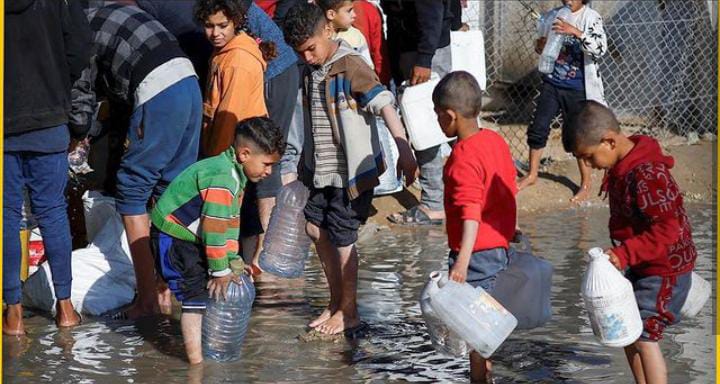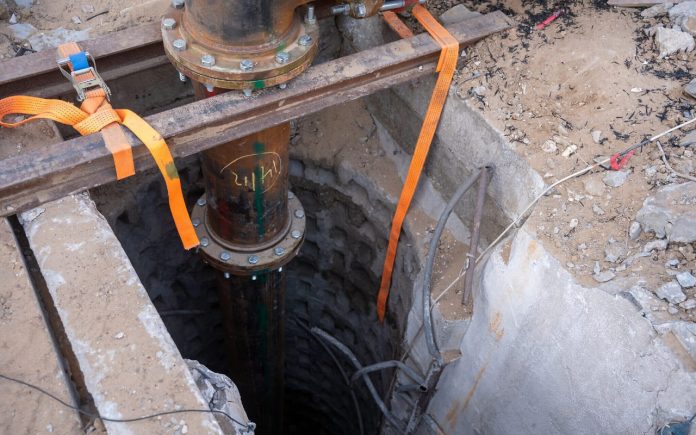1 February 2024
The Israeli military has initiated the flooding of Hamas tunnels amid the ongoing intense conflict in Gaza. The UN has issued a warning about the potential “collapse of the humanitarian system” in the region, following a funding dispute impacting its Palestinian aid agency.
Khan Yunis, the primary city in southern Gaza, has become the focal point of recent weeks’ intense conflict. Extensive areas now resemble a muddy wasteland with bombed-out structures. An AFP journalist observed residents leaving the town on Tuesday amidst nearby explosions.
On Tuesday, the Israel Defense Forces confirmed the long-speculated flooding of certain tunnels in the Gaza Strip with seawater. The statement revealed collaborative efforts between various IDF units and Defense Ministry officials to develop tools for injecting high-flow water into Hamas tunnels, constituting one of several methods employed by the IDF to address tunnel threats.
 Israel initiated the installation of pumps to channel seawater into tunnels in northern Gaza in late 2023. The United Nations cautioned that this could contaminate Gaza’s water systems, leading to structural damage to roads and buildings.
Israel initiated the installation of pumps to channel seawater into tunnels in northern Gaza in late 2023. The United Nations cautioned that this could contaminate Gaza’s water systems, leading to structural damage to roads and buildings.
South Africa brought up Israel’s tunnel flooding plan at the World Court, accusing it of genocide against Palestinians. The concern was that the initiative would devastate agriculture, deprive Gaza of drinkable water, and worsen living conditions.
Environmentalists expressed worry about soil erosion and the potential collapse of thousands of buildings. With over 70% of homes in Gaza already destroyed by Israel, seawater-contaminated soil would further threaten agriculture, exacerbating the risk of famine for the population.
UN water rights experts suggested that Israel’s actions appeared aimed at rendering Gaza uninhabitable. Prior to the siege, 97% of water in Gaza was unfit for human consumption, largely due to the aquifer’s pollution caused by Israel’s blockade and denial of water purification systems. Israel’s restrictions on access to clean water and attacks on vital water facilities have forced Palestinians to consume salty and unclean water for survival, leaving them with “barely a drop to drink,” according to the UN.




